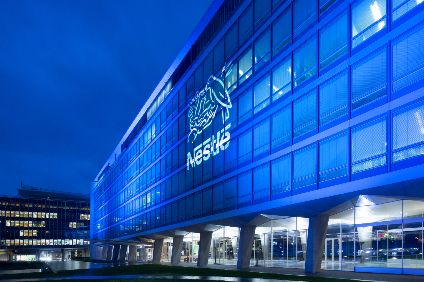
Nestlé is exploring strategic options for its skin health division as the Swiss food giant “sharpens” its focus on food, beverage and nutritional health products.
Based in Lausanne, Switzerland, Nestlé Skin Health provides science-based solutions for healthcare professionals, patients and consumers through three complementary business units: Epiduo and Soolantra in prescriptions, Restylane and Azzalure in aesthetics, and Cetaphil and Proactiv in consumer care. The division employs 5,000 people in 40 countries and had sales of around CHF2.7bn (US$2.8bn) in 2017.

Discover B2B Marketing That Performs
Combine business intelligence and editorial excellence to reach engaged professionals across 36 leading media platforms.
The owner of food brands Maggie noodles and Häagen-Dazs ice cream is considering the future of skin health as part of its nutrition, health and wellness strategy, and will meanwhile “deepen resource commitment to its key growth initiatives and facilitate the implementation of its accelerated long-term value creation strategy”.
The review is expected to completed in mid-2019 and comes on the back of an announcement this week that Nestlé will sell its Gerber Life Insurance business to Western and Southern Financial Group for $1.6bn.
“Nestlé Skin Health has made significant progress under its new leadership team over the past two years,” chief executive Mark Schneider said in a statement today (20 September). “The company has developed convincing growth strategies for each of its business units and regained a competitive cost structure. Now is the right time to explore the best ownership structure for Nestlé Skin Health and to consider ways of taking it to the next level.”
As part of the review, Nestlé re-affirmed it commitment to its Nestlé Health Science division, which focuses on medical nutrition and consumer health products, as part of its nutrition, health and wellness strategy. To that end, the company acquired Atrium Innovations earlier this year, adding to its own brands Boost, Nutren, Meritene and Peptamen.

US Tariffs are shifting - will you react or anticipate?
Don’t let policy changes catch you off guard. Stay proactive with real-time data and expert analysis.
By GlobalDataChairman Paul Bulcke added: “Our Board has fully reconfirmed the value potential of Nestlé’s Nutrition, Health and Wellness strategy. Sharpening our strategic focus on Nestlé’s core food, beverage and nutritional health products offers the best opportunity for long-term profitable growth and is fully in line with the pursuit of our company’s purpose. As a consequence, our board is convinced that exploring strategic options for Nestlé Skin Health is in the best long-term interest of this business and Nestlé shareholders.”
Alain Oberhuber, the CEO of Zurich-based MainFirst Schweiz, said if Nestlé decides to sell the skin business it could use the funds to finance a potential purchase of GlaxoSmithKline’s (GSK) Horlicks business in India. Nestlé and Anglo-Dutch consumer goods giant Unilever have been touted by media as being possible suitors for Horlicks, along with beverages giant Coca-Cola Co.
Oberhuber estimates Nestlé’s skin division could be disposed of for a sales multiple of 2.5X to 3X, and 17-20X EBIT, and could reap around CHF6.8bn to CHF8bn from a sale. The analyst puts the potential value of Horlicks at US$4bn.
“We think that the divestment of Nestlé’s Skin Health business is clearly positive for the share price as it shows that the company is refocusing its business on health and wellness, primarily on food and less on personal care,” said Oberhuber. “Secondly, the company divests businesses at a time when valuation multiples are still high.”
And the MainFirst CEO also reiterated he still sees potential for further divestments, which could include the frankfurter brand Herta, frozen prepared dishes and ice cream.





